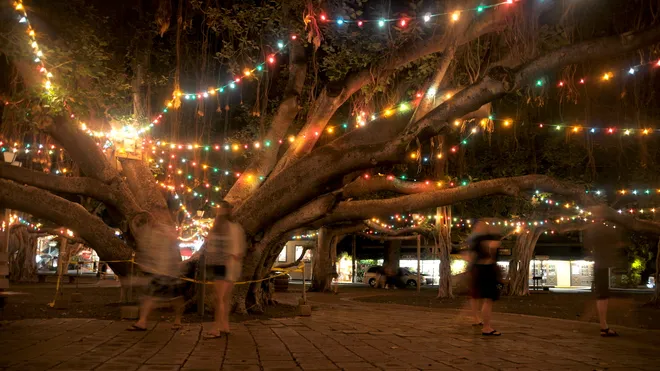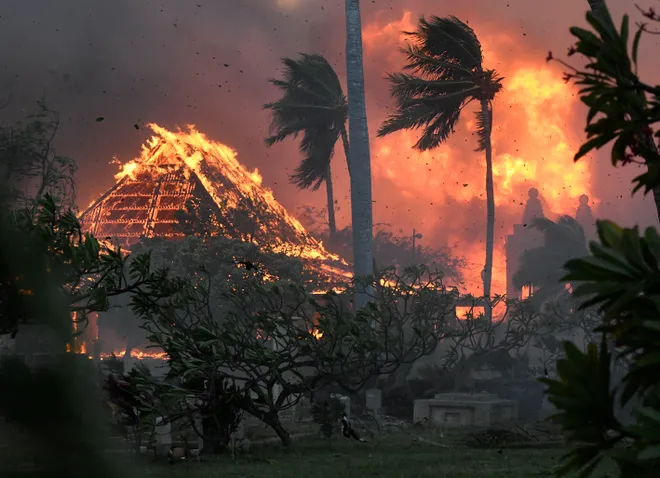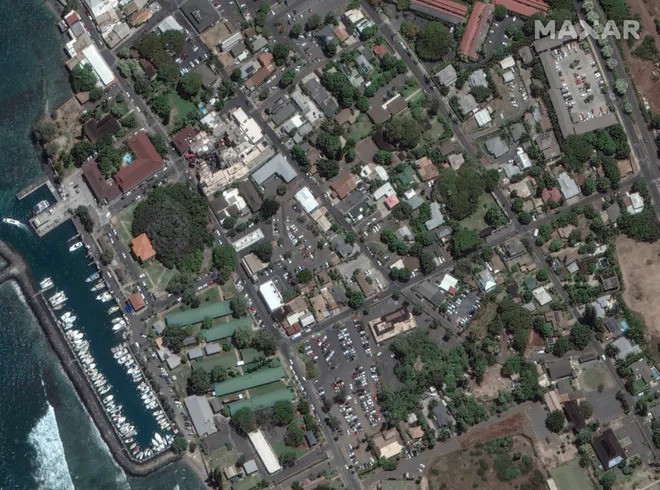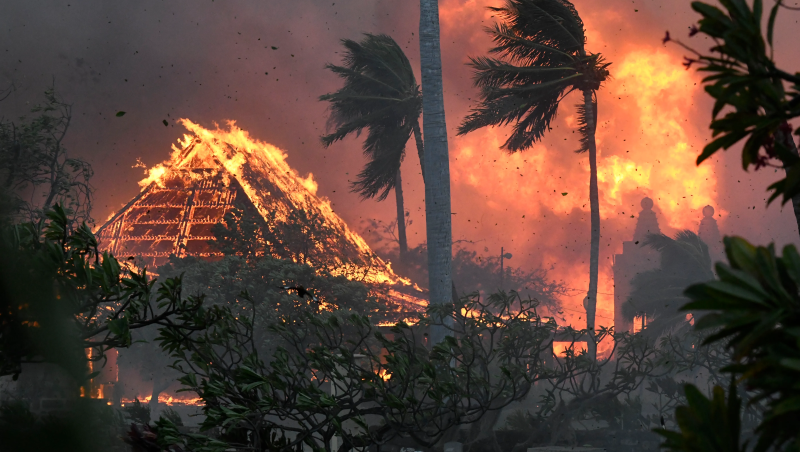'Burned down to ashes': Why devastated Lahaina Town is such a cherished place on Maui
After Maui's Lahaina Town was razed by fire Tuesday night, residents and visitors are mourning the loss of cultural and religious sites that trace their roots back centuries.
More than 250 structures were damaged or destroyed, according to Maui County, as entire blocks of Lahaina − once the capital of the Kingdom of Hawaii − went up in smoke.
Lahaina Town has also long claimed home to the largest banyan tree in the U.S., which was scorched in the fires.
The fire spread and grew faster than anyone could have imagined. In a few hours, the wind-driven blaze tore through popular Front Street and decimated the town center, which traces its roots to the 1700s and was on the National Register of Historic Places.
“Lahaina Town is now burned down to ashes, the whole entire town − hotels, buildings, the historic sites,'' said Leomana Turalde. He told USA TODAY his mother, Jon Ho’okano, 56, worked for years as a dancer at Old Lahaina Luau, considered a "well-preserved epicenter of Hawaiian culture and storytelling," the venue says on its website.
Lahaina has a population of around 13,000, according to the 2020 U.S. Census.

How old is Lahaina Town?
More than 1,000 years ago, long before the U.S. was founded, people were living on the Hawaiian islands and leaving their mark. From the years 1,000-1,200, people from Polynesia traveled about 2,500 miles north and settled on the islands of Hawaii, the National Park Service says on its website.
Throughout history, different Hawaiian rulers vied for power over the islands, and Lahaina was consistently a site of royal and religious importance with its cemeteries and historic churches.
Waiola Church, which burned in the fire, was the site of the start of Christianity in Hawaii in the early 1800s, according to the church's website.
The church crumbled, but the loss will be temporary, Anela Rosa, the church's lay minister of 13 years told USA TODAY. She said the church will bring people together for the next service, even if they have to use pop-up tents.

"This church, this congregation, has a resiliency unlike any other," Rosa said. "That's why I know we will rebuild and be better than ever."
Before Hawaii became a U.S. territory in 1898, King Kamehameha I made Lahaina the capital of the Kingdom of Hawaii.
Also in the 1800s, Hawaii's royal leaders built a brick palace in Lahaina, along with other royal residences, according to one of the town's tourism websites.
Lahaina Banyan Court Park is home to the famous banyan fig tree planted in 1873 after being imported from India. It was threatened by the fires and suffered damage to trunks and limbs but remains standing, the Honolulu Civil Beat reported.

Fires destroy 'cultural heritage' in Lahaina
Locals say losing so much of Lahaina is painful because the culture the place represents connects to a time with revered roots.
For Francine Hollinger, a 66-year-old Native Hawaiian, losing Lahaina was "like losing a family member."
“Because they’ll never be able to rebuild it, like we wouldn’t be able to bring back our mother or father,” she said.
While it’s still difficult to assess the damage, state Sen. Gilbert Keith-Agaran told USA TODAY various landmarks have reportedly been lost – historic businesses and cemeteries where royal figures were buried.
“It’s a real loss. Hawaii and Maui have tried really hard to preserve and protect those places for many, many years … not for the sake of tourism but because it’s part of our cultural heritage,” said Keith-Agaran, whose district includes Kahului in central Maui.
“We just lost a large part of our heritage,” he said.
In addition to being a historic area, Lahaina Town is a residential and tourist area with a commercial district. For decades, it has been considered the west side of Maui's main downtown area.
The area is also known for two longtime beach resorts, Kaanapali and Kapalua. Lahaina Harbor attracts tourists with water sports, fishing and boat rides.
Contributing: Terry Collins, Alia Wong, N'dea Yancey-Bragg, Jorge L. Ortiz, Kathleen Wong, Ashley Lewis, Itzel Luna, USA TODAY; Associated Press

Disclaimer: The copyright of this article belongs to the original author. Reposting this article is solely for the purpose of information dissemination and does not constitute any investment advice. If there is any infringement, please contact us immediately. We will make corrections or deletions as necessary. Thank you.






